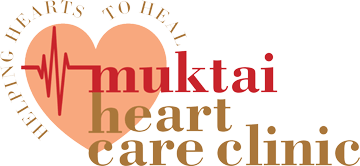
23 Feb The road to a better life
Improving your heart health is not difficult if you know how to eat and exercise.
Follow these tips to get the most out of your diet and exercise program:
Food
The food you eat can affect your weight, your hormones, and the health of your organs, including your heart. Eating a healthy diet can help reduce the risk of heart disease and stroke.
Choose Healthy Fats
Despite what you may have heard, some oils are good for you. When using oils in cooking, choose monounsaturated fats, such as olive oil or canola oil. Avocado is also a good source of monounsaturated fats. Polyunsaturated fats and omega-3 fatty acids are also healthy choices. Polyunsaturated fats are found in nuts and seeds. Omega-3 fats are found in fish, such as tuna and salmon. Generally, you should try to avoid Tran’s fats. Trans fats are commonly found in processed foods and snacks such as crackers or snack cakes. To find out if food is high in fat, see the words “hydrogenated component” on the ingredient label.
Go Grain
Whole-grain bread or fiber-rich complex carbohydrates. Choose instead of white bread or regular pasta for sandwiches and food.
Eat more fruits and vegetables
They contain fiber, vitamins, and minerals that are good for your body. They can also add flavor and variety to your diet.
Don't forget the beans
Dried beans, peas, and nuts provide protein and fiber. Sometimes, try substituting beans for meat in a favorite recipe, such as lasagne or chili.
Choose low-fat milk
Find low-fat or low-fat versions of dairy, yogurt, and cheese products.
Add protein
Eat foods rich in protein, including fish, lean meats, skinless chicken, eggs, nuts and seeds, and beans.
Try to eat
The DASH (Dietary Approaches to Stop Hypertension) diet is a healthy cardiovascular system that lowers blood pressure and bad cholesterol in your blood. Or try the Mediterranean Diet for a healthier diet.
What SHOULD I NOT EAT?
A healthy heart diet reduces certain nutrients. These include:
Sodium
Sprinkle with spicy or salty foods instead of salt. Beware of pre-packaged foods, sauces, canned foods, and processed foods. All of them may contain high levels of sodium.
Saturated fats and Trans fats
Satisfied fats are found in fatty meats, chicken skin, whole milk, butter, buttermilk, coconut oil, and palm oil. Tran’s fats are found in other desserts, microwave popcorn, frozen pizza, chopped margarine, and coffee creams. Look for words that are part of the hydrogenated oil on the food label.
More Sugar
Sugary drinks, snacks, and snacks are a major source of added sugar in the United States. These include sodas, sweet coffee and tea, energy drinks, cakes, pies, ice cream, sweets, syrups, and gels. Limit these types of foods and beverages.
Alcohol
Limit your alcohol intake. Men should not drink more than 2 drinks a day. Women should not drink more than 1 drink a day. Too much alcohol can raise blood pressure and make you fat. It can also contribute to or worsen heart failure in some people.


